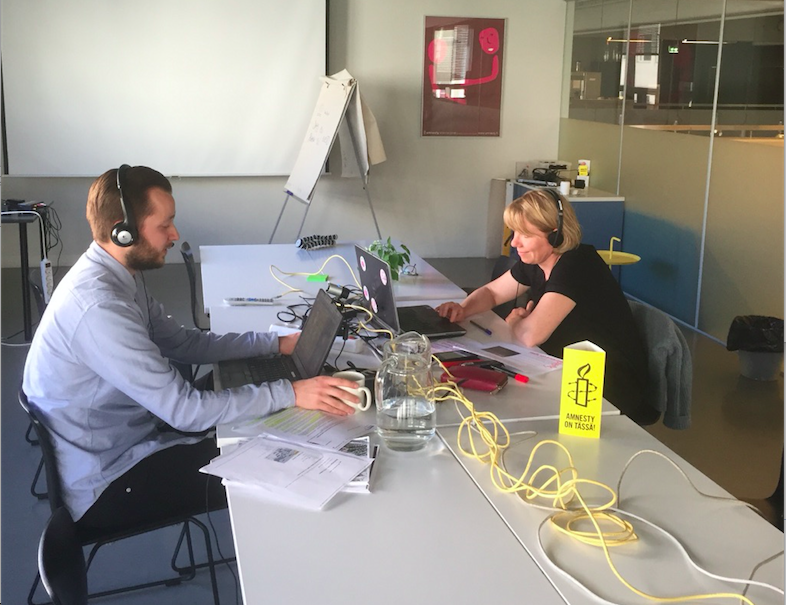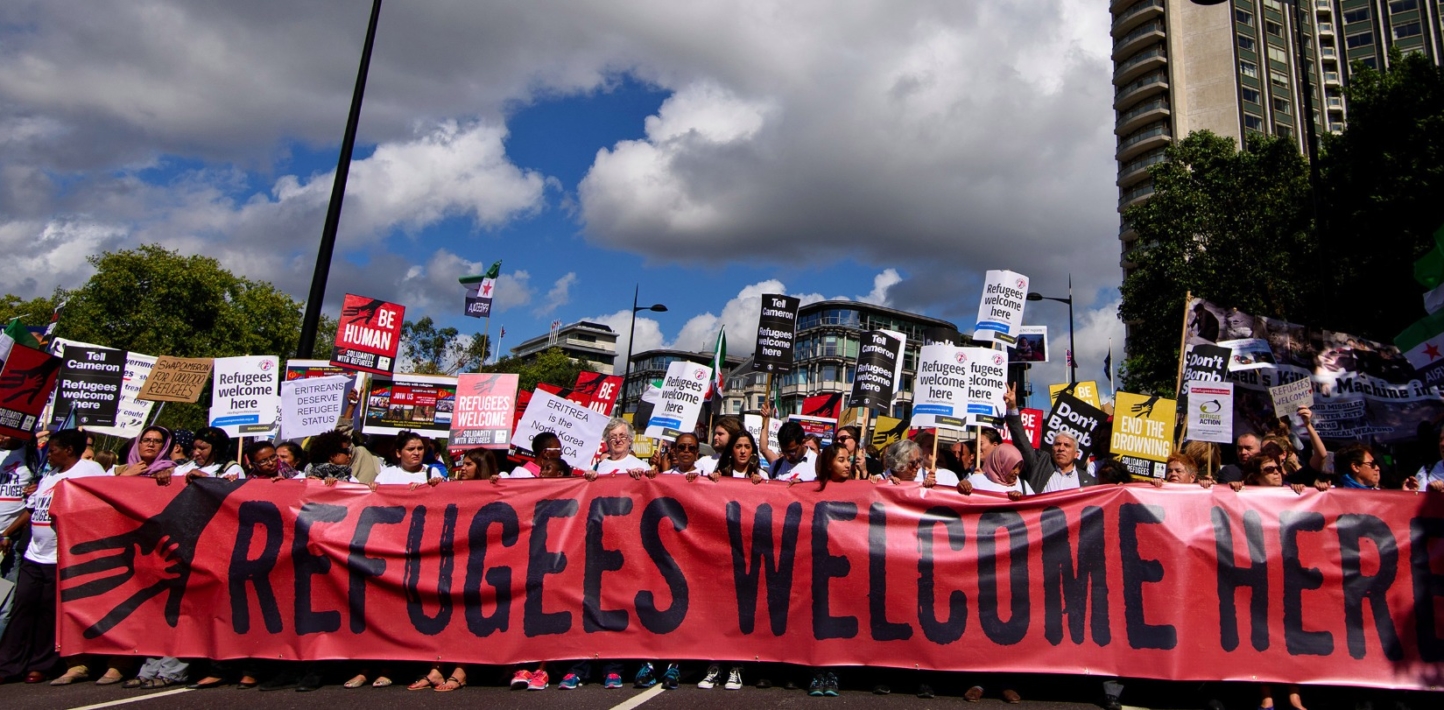The global refugee crisis has led to many initiatives, including responses from schools and students calling for greater respect for the rights of refugees. In support of World Refugee Day, educators show how students in different countries are raising awareness of the risks and difficulties faced by refugees.
Questioning identities
What does identity mean and what role does it play in the social construction we have of others? These questions were raised by Slovenian students at the annual event Path along the Wire, which commemorates the end of Ljubljana’s occupation during the Second World War.
Looking at the concept of identity through the cases of well-known human rights defenders who were forced to find refuge abroad, including physicist Albert Einstein, female rapper M.I.A, and author and model Waris Dirie, students addressed some of the common myths surrounding refugees and migrants living in Europe.
Along the event, Amnesty International Slovenia organized human rights education activities for primary school students and shared information on the acts of human rights defenders to help them reflect on the meaning of the word “refugee” and discuss the different ways individuals identify themselves. “This year’s event focused on showing how people go through different experiences, and highlighting well-known people who are also refugees. Before the event we gave schools and teachers an education pack with activities explaining why people leave their homes, but also how to create a safe and inclusive environment for refugee children enrolled in Slovenian schools, which is a new phenomenon in the country,” explains Ana Cemazar, Human Rights Education Coordinator at Amnesty International Slovenia.
Over 40,000 people – among which 3,000 students – took part in the 3-day event, and 1,400 signatures in support of welcoming refugees were collected.

Understanding the legal framework
Understanding the legal aspects of the status of a refugee is a key element to claiming and defending refugee rights. A group of activists from Amnesty International Switzerland designed an educational activity for secondary students to understand the international legal framework regulating the status of refugees. Educators and facilitators can use the Parcours Migration packas a conversation starter to introduce legal notions such as the 1951 Refugee Convention, refugee status, the principle of non-refoulement, and the International Convention on the Protection of the Rights of All Migrants Workers and Members of their Families.
The activity, conceived as a fictional journey, demonstrates how individuals fleeing their country are particularly at risk of human rights violations. Participants roll a dice to discover which simulated situations they would be confronted with as refugees. The decisions they make will then determine the next steps of their journey.
“The activity we participated in was very good, I have been able to realize what some people face every day,” says a student. “It was very interesting. There were a lot of emotional but also shocking moments. The game format of this activity is very strong, although for us it is almost too much of a game. At some point we looked at each other and said ‘This is the end’. “When we thought about it, I just wanted to scream and cry,” shares another participant.
For more information on how to use Parcours Migration at school, teachers and educators can contact Amnesty International Switzerland.
Encouraging activism through online training
To share experience of field work with young people and human rights workers, and support activism and campaigning, Amnesty International Finland has set up a webinar series on refugee rights. This online training course, which started in April, is composed of six sessions that run until September.
Each of the sessions focuses on a different aspect of the reality of migrants and refugees in Europe, looking at the multiple causes of the global refugee crisis, border control and human rights, safety for refugees and legal routes, asylum procedures, family reunification, as well as deportation and detention. So far, approximately 200 people have signed up to follow the live sessions and chat online with staff from Amnesty International, the Finnish Refugee Council and other NGOs. Recordings of the sessions are made available online for participants to watch later.
“We received positive feedback from people who liked the training and how easy it is to access. Activists get together in a meeting room to watch it as a group. Now we can reach people all over Finland who are looking to increase their knowledge and would like to join our campaign. This is something that can have a real impact in the long run,” says Maarit Pihkala, Human Rights Education Adviser at Amnesty International Finland.
Registrations are open to take part in the webinar series (available in Finnish only).



